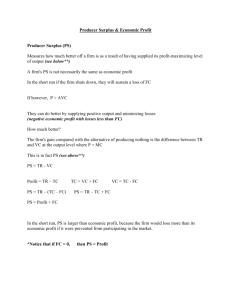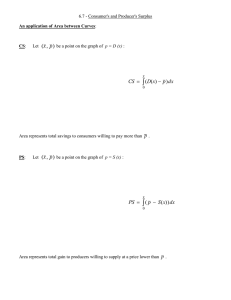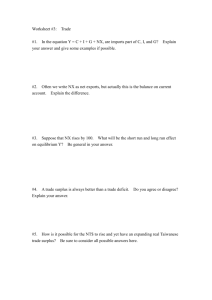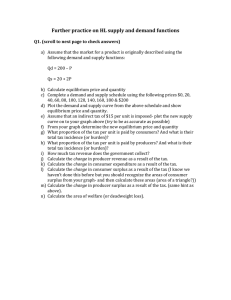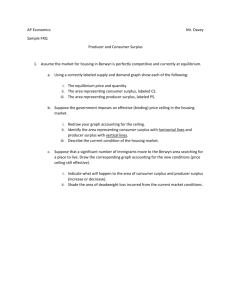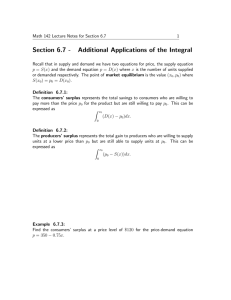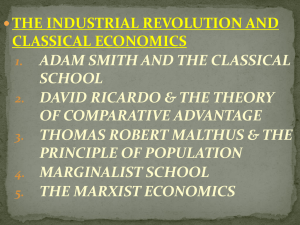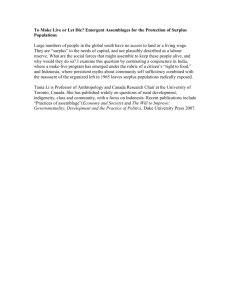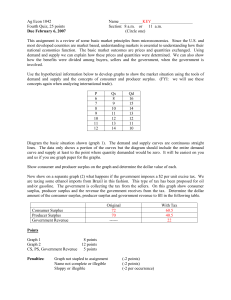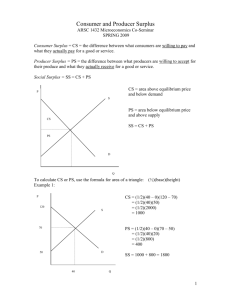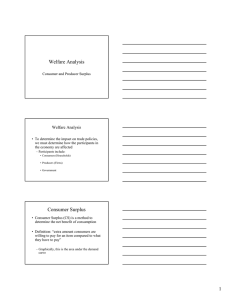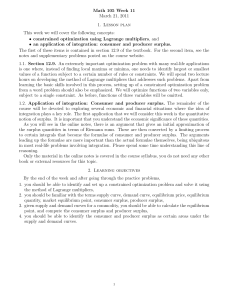Demand and Supply in International Trade
advertisement
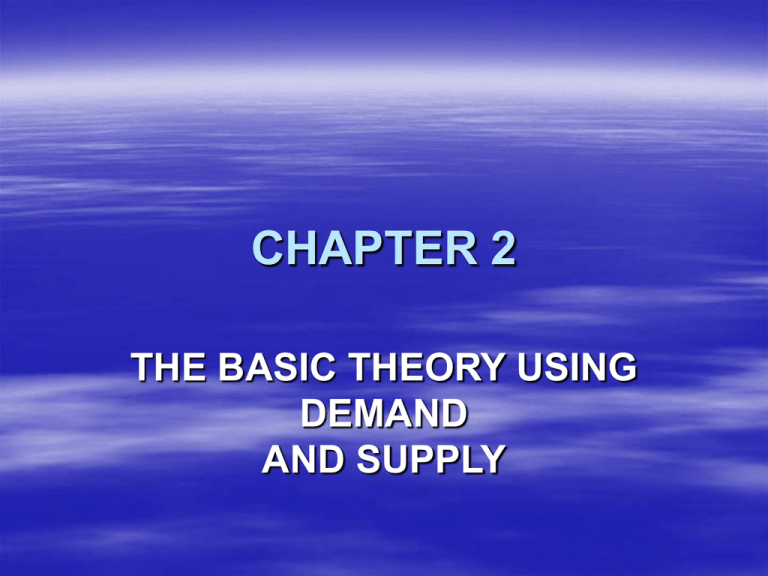
CHAPTER 2 THE BASIC THEORY USING DEMAND AND SUPPLY Key Questions About International Trade 1. 2. 3. 4. Why do countries trade? What is the basis for trade, especially the product (commodity) composition? For each country, what are the overall gains (or losses) from trade? What are the effects of trade on each country’s economic structure? Production, Consumption. What are the effects of trade on the distribution of income within each country? Winners, Losers. 2 Figure 2.1 3 Consumer surplus Consumer surplus is the increase in the economic well-being of consumers who are able to buy the product at a market price lower than the highest price that they are willing and able to pay for the product. A major use of consumer surplus is to measure the impact on consumers of a change in market price. 4 Producer surplus Producer surplus is the increase in the economic well-being of producers who are able to sell the product at a market price higher than the lowest price that would have drawn out their supply. A major use of producer surplus is to measure the impact on producers of a change in market price. 5 Figure 2.2 6 Two national markets and the opening of trade If you were the first person to notice this situation, could you make a profit? Let’s say that the United States is willing to open up to free trade and integrate into the world market. If it does this, the world price will also be the price within the United States. How much will the United States want to import? 7 Two national markets and the opening of trade What will happen with free trade? When there is ongoing free trade, what is the equilibrium world price? 8 Figure 2.3 9 Two national markets and the opening of trade What group is made happier by the shift from no trade to free trade? What group is a loser? Can we somehow say that the country gains from free trade? 10 Figure 2.4 11 Questions The United States exports a substantial amount of scrap iron and steel to Japan and other countries. Why do some U.S. users of scrap iron and steel support a prohibition on these exports? 12 Questions 1. 2. 3. The equation for the demand curve for writing paper in A country is QD=350-(P/2); the equation for the supply curve for writing paper in A is QS=-200+5P What are the equilibrium price and quantity if there is no international trade? What are the equilibrium quantities for A if the nation can trade freely with the rest of the world at a price of 120yuan? What is the effect of the shift from no trade to free trade on A consumer surplus? On A producer surplus? What is the net national gain or loss for A? 13 Questions Explain what is wrong with the following statement: “Trade is self-eliminating. Opening up trade opportunities drives prices and costs into equality between countries. But once prices and costs are equalized, there is no longer any reason to trade the product from one country to another, and trade stops.” 14
